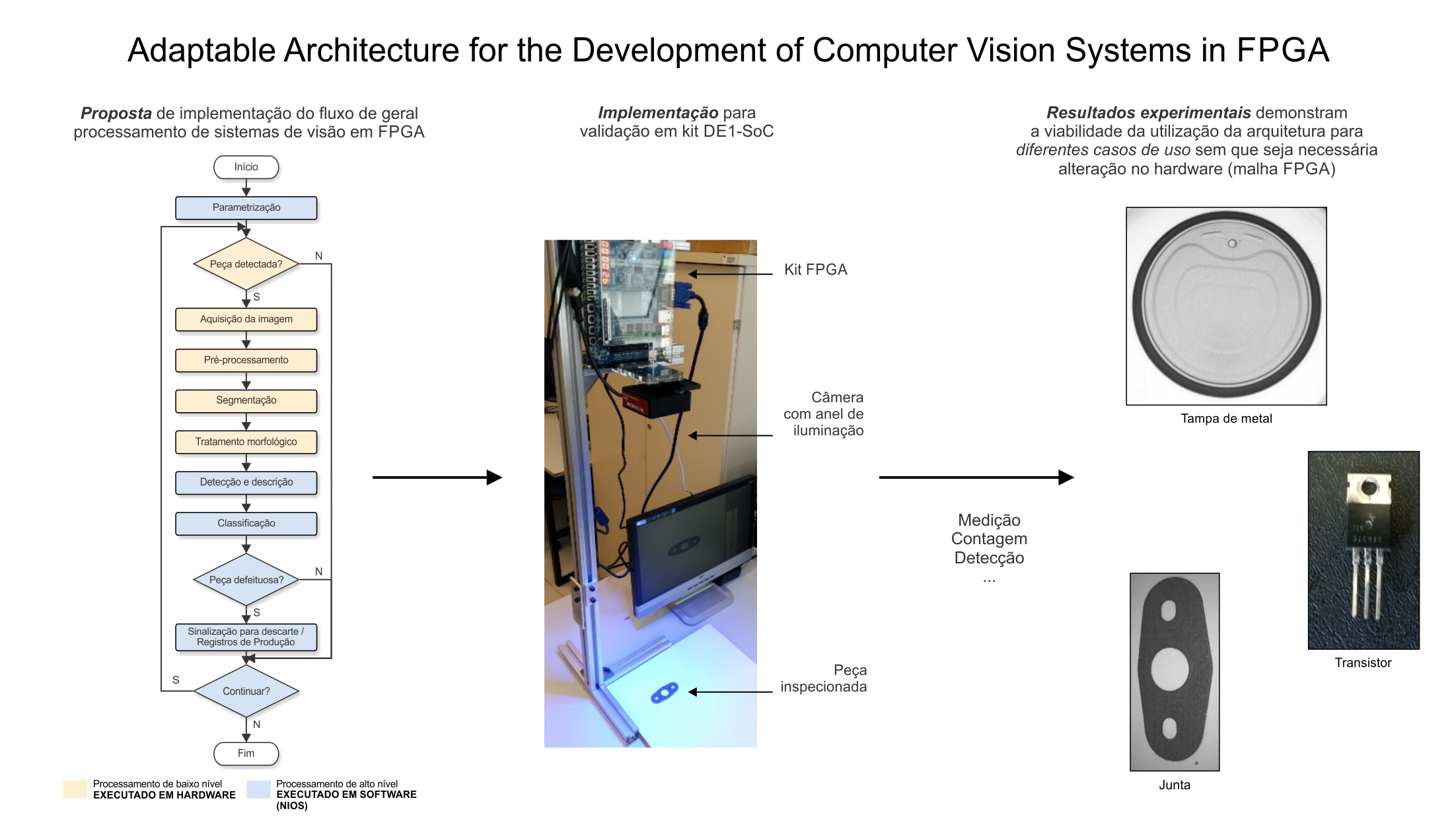Adaptable Architecture for the Development of Computer Vision Systems in FPGA
Keywords:
Automated Inspection, Image Processing, Computer Vision, FPGA, NIOSAbstract
Computer vision systems are increasingly used in industry for inspection or process control. The more demanding requirements observed today make the implementation of this type of systems a technological challenge. Many of the computational architectures available allow us to meet the main functional requirements related to the use case and also the non-functional ones, such as processing time restrictions and connectivity. However, the requirement for adaptability so that such systems can be easily modified to meet different use cases or even accommodate environmental changes remains a challenge. This work proposes a flexible architecture for computer vision systems using FPGA. This architecture combines components of the processing flow of the vision system implemented in hardware and software to obtain advantages associated with both approaches. The proposed solution is validated against different real use cases existing in the industry. The results obtained allow us to affirm that such architecture brings an interesting advantages since it meets the operational requirements present in industrial applications, demands less development effort and can be easily adapted to new usage scenarios.
Downloads


